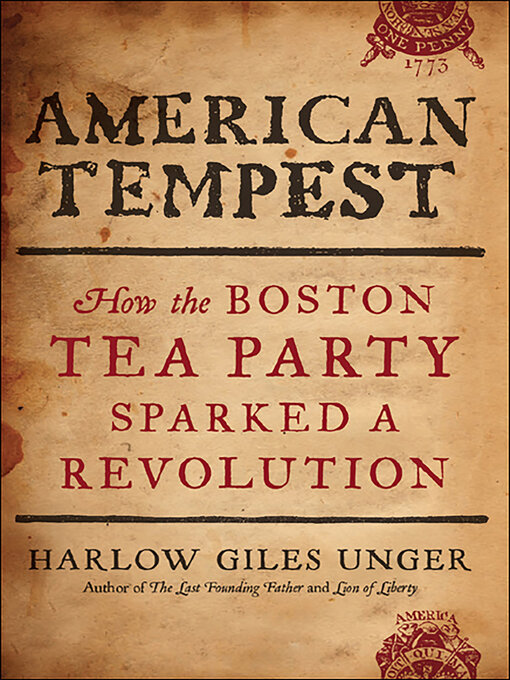The Boston Tea Party provoked a reign of terror in Boston and other American cities as tea parties erupted up and down the colonies. The turmoil stripped tens of thousands of their homes and property, and nearly 100,000 left forever in what was history's largest exodus of Americans from America. Nonetheless, John Adams called the Boston Tea Party nothing short of "magnificent," saying that "it must have important consequences."
Combining stellar scholarship with action-packed history, Harlow Giles Unger reveals the truth behind the legendary event and examines its lasting consequence—the spawning of a new, independent nation.

